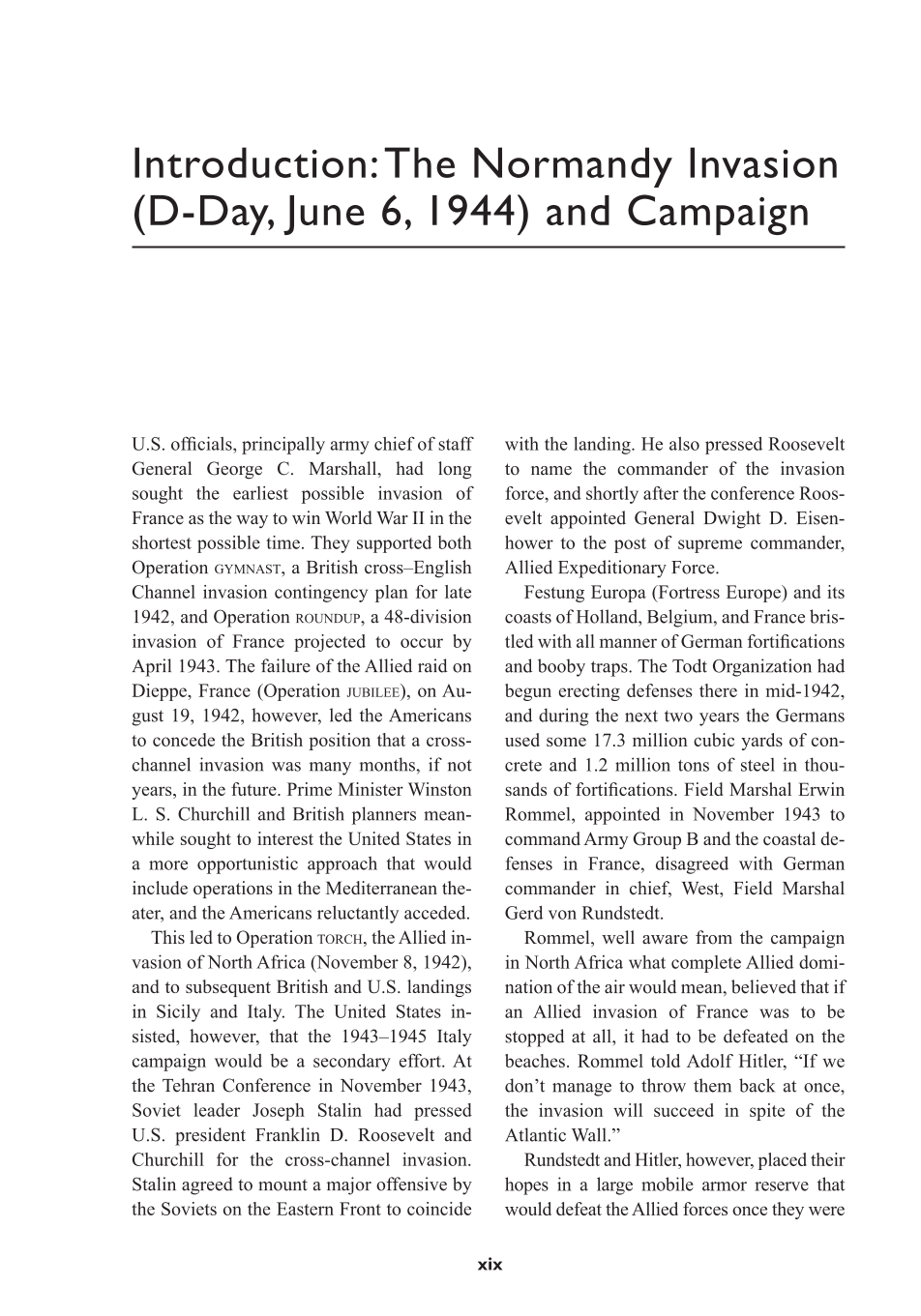xix
U.S. officials, principally army chief of staff
General George C. Marshall, had long
sought the earliest possible invasion of
France as the way to win World War II in the
shortest possible time. They supported both
Operation gymnast, a British cross–English
Channel invasion contingency plan for late
1942, and Operation roundup, a 48-division
invasion of France projected to occur by
April 1943. The failure of the Allied raid on
Dieppe, France (Operation jubilee), on Au-
gust 19, 1942, however, led the Americans
to concede the British position that a cross-
channel invasion was many months, if not
years, in the future. Prime Minister Winston
L. S. Churchill and British planners mean-
while sought to interest the United States in
a more opportunistic approach that would
include operations in the Mediterranean the-
ater, and the Americans reluctantly acceded.
This led to Operation torch, the Allied in-
vasion of North Africa (November 8, 1942),
and to subsequent British and U.S. landings
in Sicily and Italy. The United States in-
sisted, however, that the 1943–1945 Italy
campaign would be a secondary effort. At
the Tehran Conference in November 1943,
Soviet leader Joseph Stalin had pressed
U.S. president Franklin D. Roosevelt and
Churchill for the cross-channel invasion.
Stalin agreed to mount a major offensive by
the Soviets on the Eastern Front to coincide
with the landing. He also pressed Roosevelt
to name the commander of the invasion
force, and shortly after the conference Roos-
evelt appointed General Dwight D. Eisen-
hower to the post of supreme commander,
Allied Expeditionary Force.
Festung Europa (Fortress Europe) and its
coasts of Holland, Belgium, and France bris-
tled with all manner of German fortifications
and booby traps. The Todt Organization had
begun erecting defenses there in mid-1942,
and during the next two years the Germans
used some 17.3 million cubic yards of con-
crete and 1.2 million tons of steel in thou-
sands of fortifications. Field Marshal Erwin
Rommel, appointed in November 1943 to
command Army Group B and the coastal de-
fenses in France, disagreed with German
commander in chief, West, Field Marshal
Gerd von Rundstedt.
Rommel, well aware from the campaign
in North Africa what complete Allied domi-
nation of the air would mean, believed that if
an Allied invasion of France was to be
stopped at all, it had to be defeated on the
beaches. Rommel told Adolf Hitler, “If we
don’t manage to throw them back at once,
the invasion will succeed in spite of the
Atlantic Wall.”
Rundstedt and Hitler, however, placed their
hopes in a large mobile armor reserve that
would defeat the Allied forces once they were
Introduction: The Normandy Invasion
(D-Day, June 6, 1944) and Campaign

















































































































































































































































































































